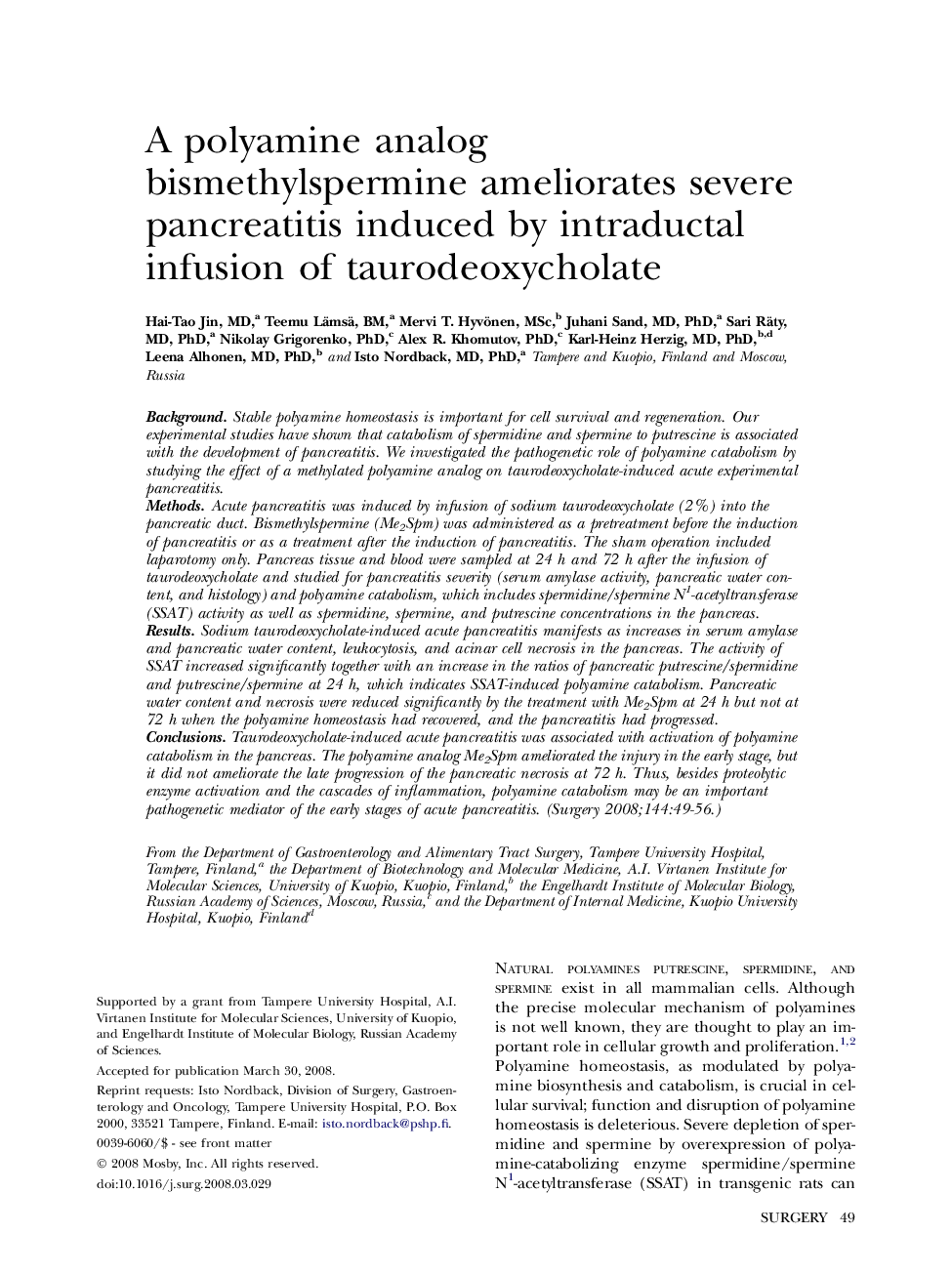| Article ID | Journal | Published Year | Pages | File Type |
|---|---|---|---|---|
| 4309759 | Surgery | 2008 | 8 Pages |
BackgroundStable polyamine homeostasis is important for cell survival and regeneration. Our experimental studies have shown that catabolism of spermidine and spermine to putrescine is associated with the development of pancreatitis. We investigated the pathogenetic role of polyamine catabolism by studying the effect of a methylated polyamine analog on taurodeoxycholate-induced acute experimental pancreatitis.MethodsAcute pancreatitis was induced by infusion of sodium taurodeoxycholate (2%) into the pancreatic duct. Bismethylspermine (Me2Spm) was administered as a pretreatment before the induction of pancreatitis or as a treatment after the induction of pancreatitis. The sham operation included laparotomy only. Pancreas tissue and blood were sampled at 24 h and 72 h after the infusion of taurodeoxycholate and studied for pancreatitis severity (serum amylase activity, pancreatic water content, and histology) and polyamine catabolism, which includes spermidine/spermine N1-acetyltransferase (SSAT) activity as well as spermidine, spermine, and putrescine concentrations in the pancreas.ResultsSodium taurodeoxycholate-induced acute pancreatitis manifests as increases in serum amylase and pancreatic water content, leukocytosis, and acinar cell necrosis in the pancreas. The activity of SSAT increased significantly together with an increase in the ratios of pancreatic putrescine/spermidine and putrescine/spermine at 24 h, which indicates SSAT-induced polyamine catabolism. Pancreatic water content and necrosis were reduced significantly by the treatment with Me2Spm at 24 h but not at 72 h when the polyamine homeostasis had recovered, and the pancreatitis had progressed.ConclusionsTaurodeoxycholate-induced acute pancreatitis was associated with activation of polyamine catabolism in the pancreas. The polyamine analog Me2Spm ameliorated the injury in the early stage, but it did not ameliorate the late progression of the pancreatic necrosis at 72 h. Thus, besides proteolytic enzyme activation and the cascades of inflammation, polyamine catabolism may be an important pathogenetic mediator of the early stages of acute pancreatitis.
